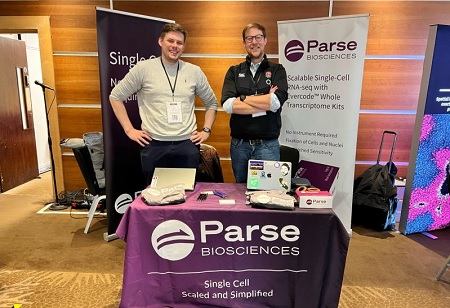
Parse Biosciences Expands in Asia with Prisma Biotech Partnership

 Parse Biosciences, a top provider of accessible and scalable single-cell sequencing solutions, has announced a partnership with Prisma Biotech, based in Taipei, to expand its presence in Taiwan and throughout the Asia-Pacific region.
Parse Biosciences, a top provider of accessible and scalable single-cell sequencing solutions, has announced a partnership with Prisma Biotech, based in Taipei, to expand its presence in Taiwan and throughout the Asia-Pacific region.
“Biotech, pharma, and academic researchers across Asia are boosting demand for Parse’s Evercode single-cell sequencing solutions in the region as they discover their scalability and simplicity”, noted Parse Biosciences CEO and co-founder Alex Rosenberg, Ph.D. “We’re excited to empower them to easily take advantage of Parse’s single cell sequencing technology through our partnership with Prisma”.
The partnership with Prisma Biotech will provide more researchers across Asia with comprehensive access to Parse’s single-cell portfolio, which includes Evercode Whole Transcriptome, Evercode TCR, Evercode BCR, Evercode Cell Fixation, Evercode Nuclei Fixation, Gene Select, CRISPR Detect, and the Trailmaker data analysis solution. This agreement continues Parse’s expansion efforts in Asia, which also includes South Korea, Singapore, and India, as well as key international markets like North America, Europe, Australia, Israel, and New Zealand.
“Single cell sequencing products are in high demand, and Parse’s Evercode technology is extremely compelling because of its scalability and ease of use”, noted Prisma Biotech CEO Kevin Tseng. “Our partnership with Parse will bring single cell sequencing to a wide range of researchers in Taiwan and the larger Asia-Pacific region, and we’re excited to support scientific discoveries the tools enable”.
Parse Biosciences is an international life sciences company dedicated to advancing human health and scientific research. By providing researchers with the ability to conduct single-cell sequencing with exceptional scale and simplicity, its innovative approach is driving transformative discoveries in cancer treatment, tissue repair, stem cell therapy, kidney and liver diseases, brain development, and the immune system.

